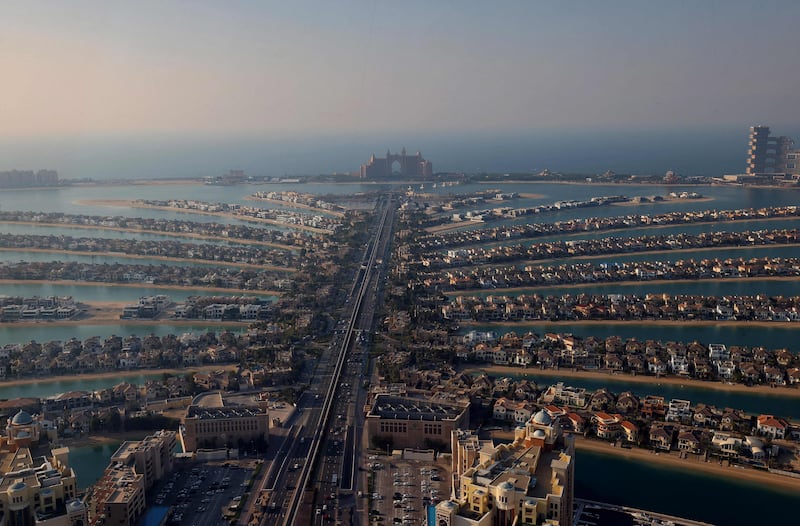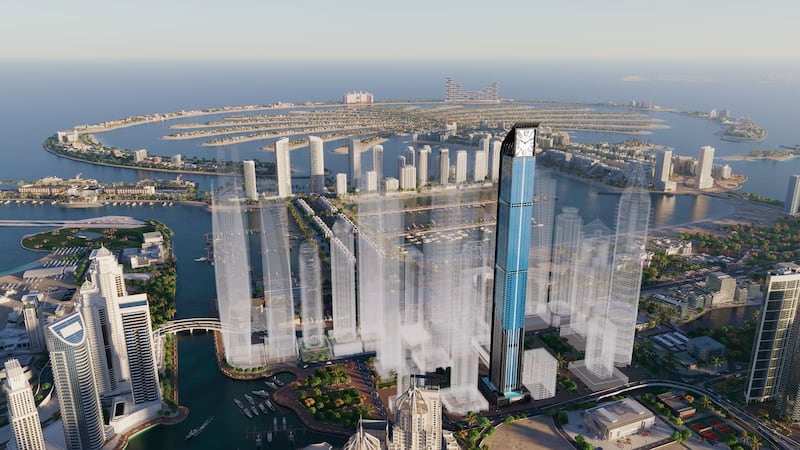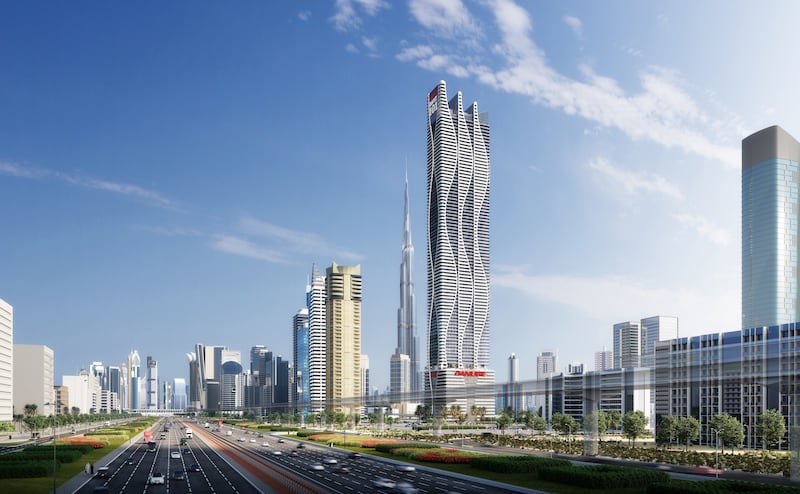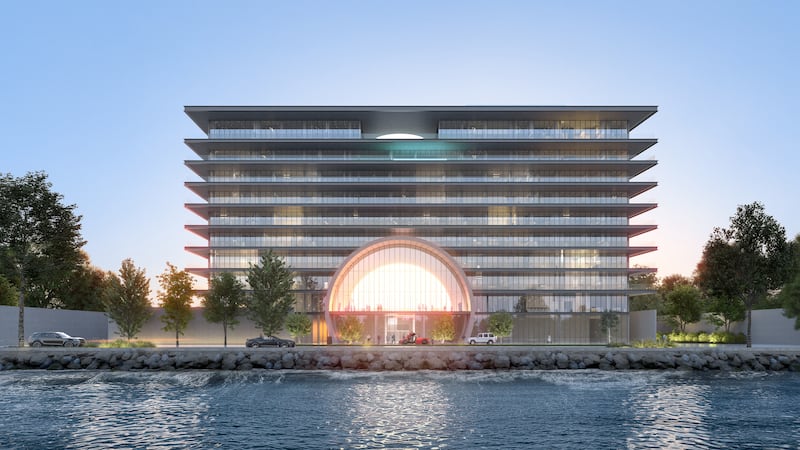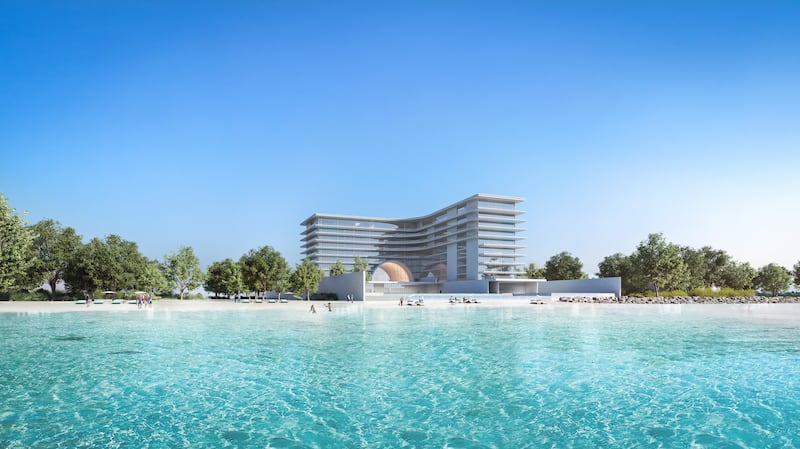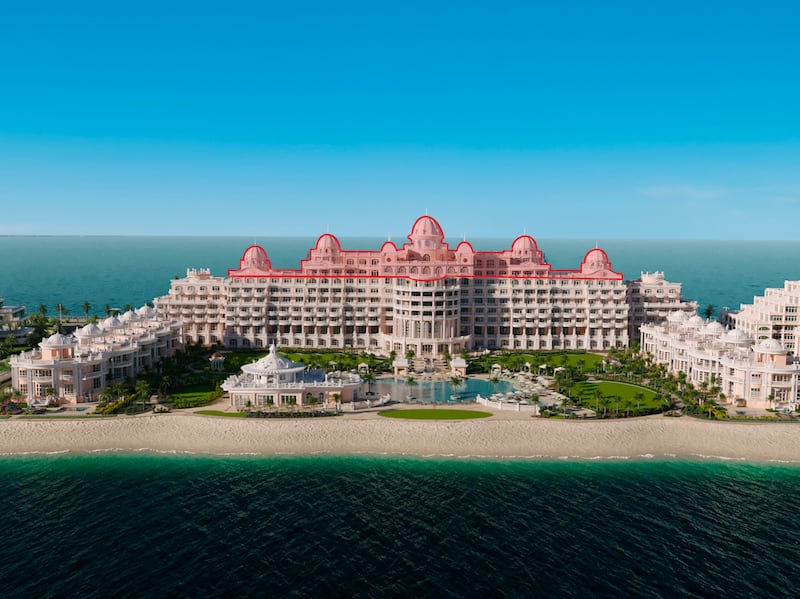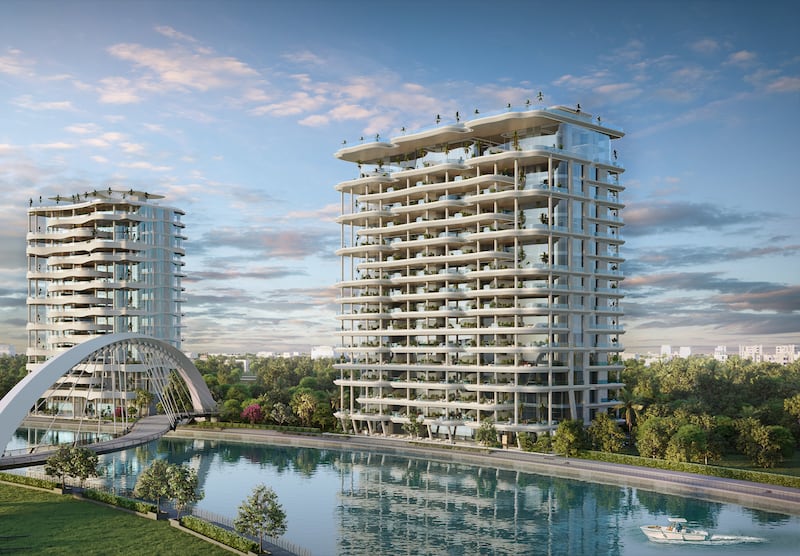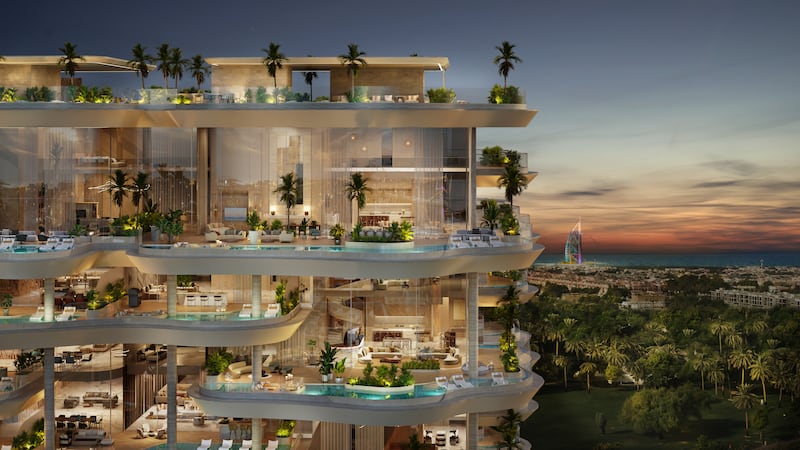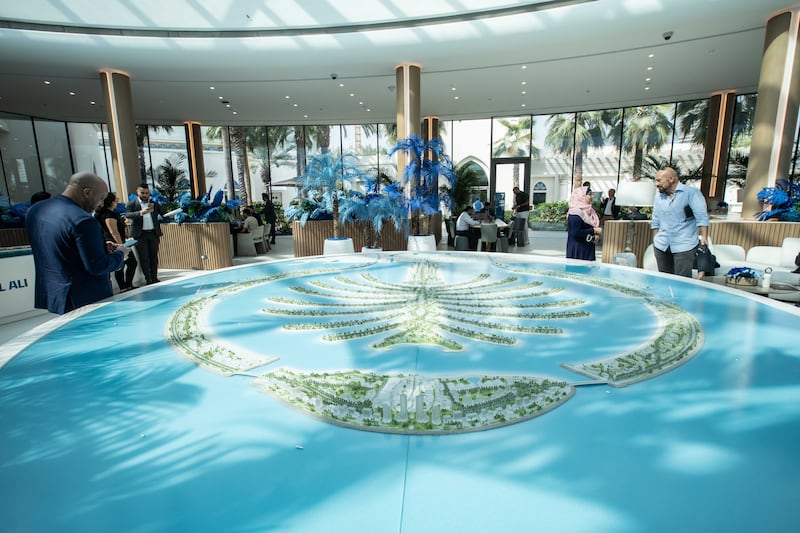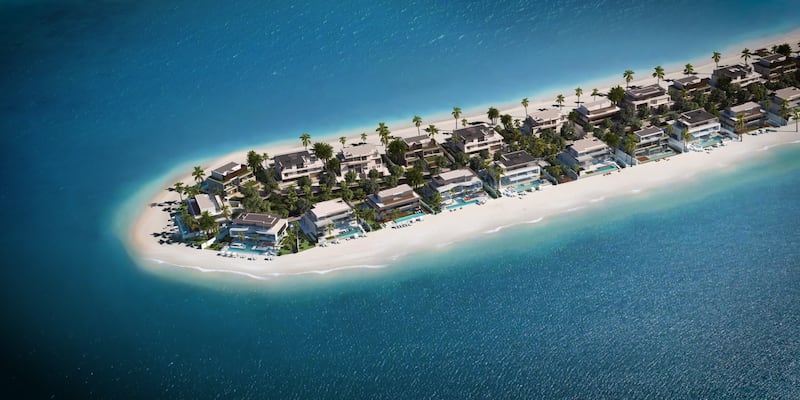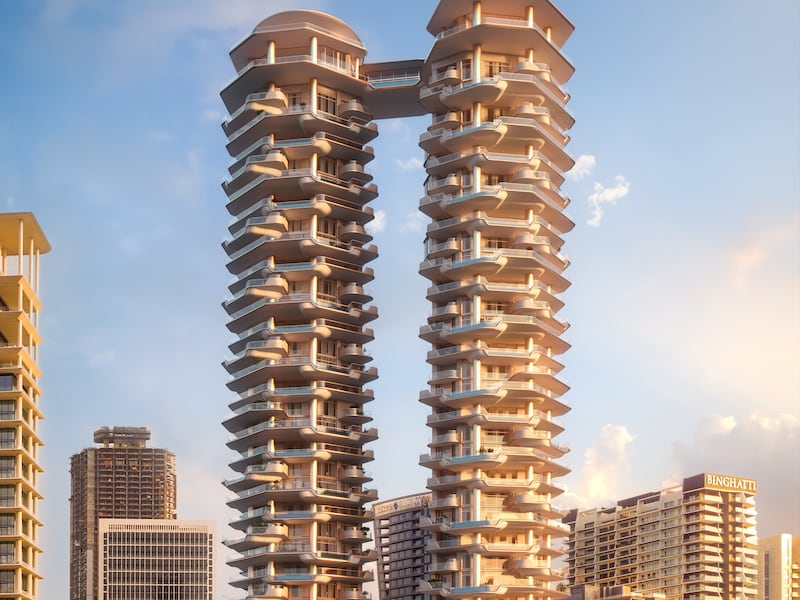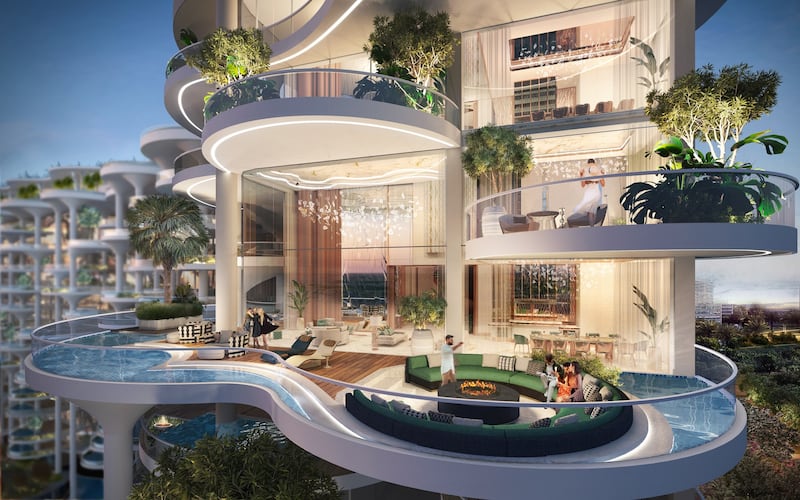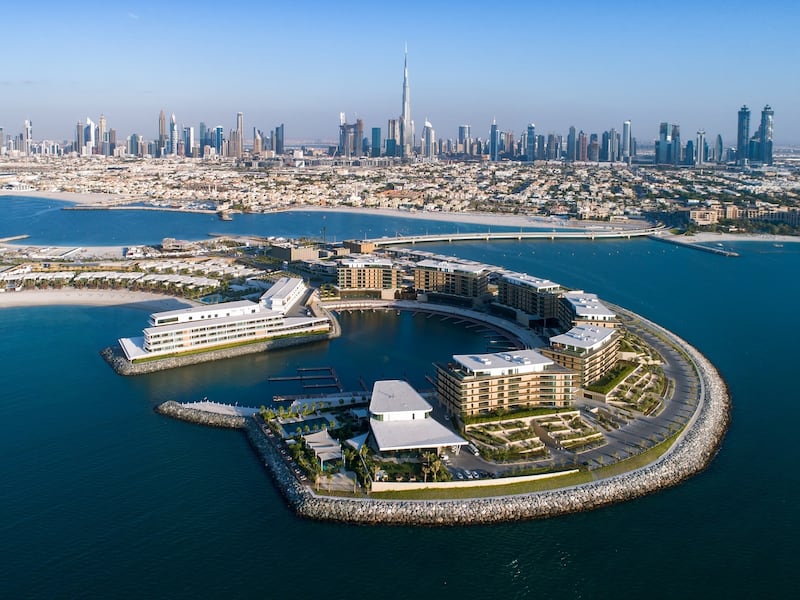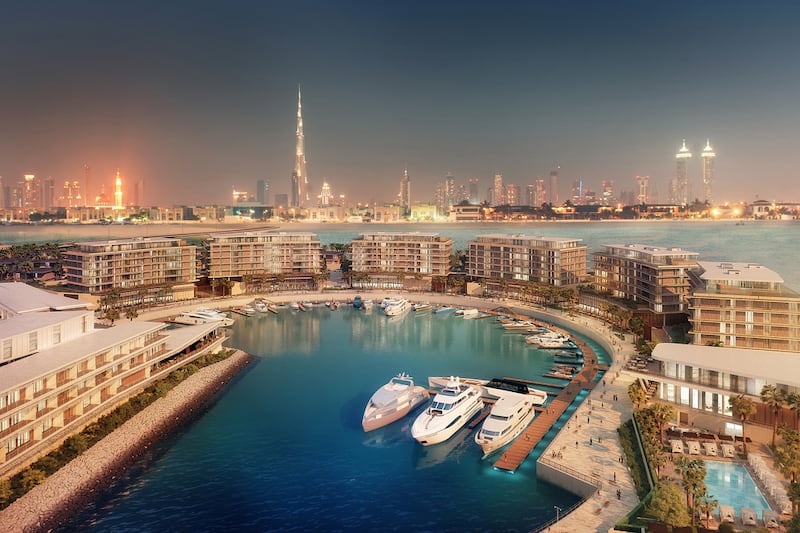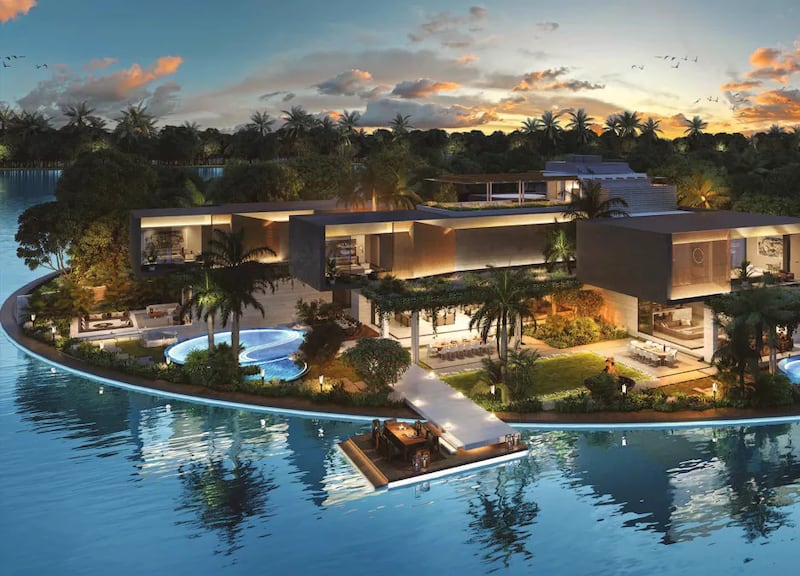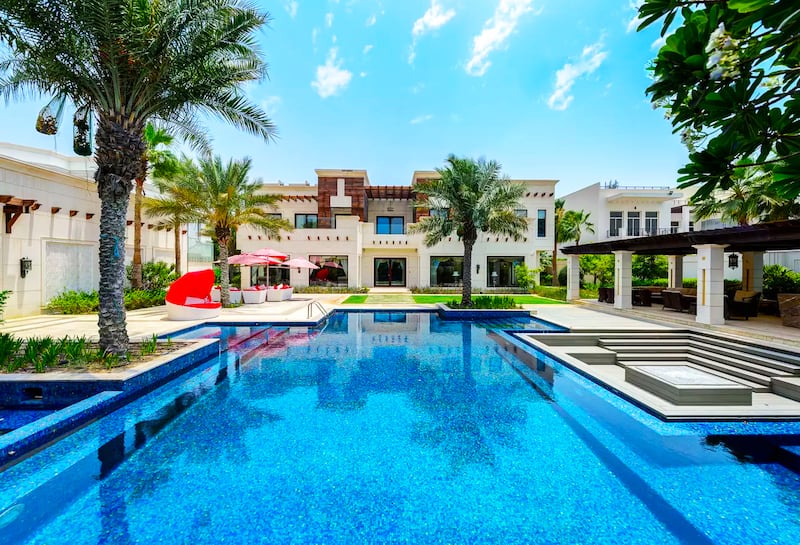Prices of $10 million-plus homes in Dubai grew at one of the fastest rates globally, as overseas demand for prime residences in the emirate continues unabated.
Dubai’s prime residential market, which includes The Palm Jumeirah, Jumeirah Bay Island and Emirates Hills, saw prices grow by more than 26 per cent last year, property consultancy Knight Frank said in a report on Tuesday.
There were 105 recorded sales of homes priced at more than $10 million during the first three months of the year, up 19 per cent on the same period last year. Palm Jumeirah accounted for just over a third of transactions during the quarter.
“After growing by 16.3 per cent in 2023, following an extraordinary 44.4 per cent increase during 2022, Dubai’s prime residential market has grown by 26.3 per cent over the last 12 months, easily making it one of, if not the fastest, growing prime residential market globally,” said Faisal Durrani, partner and head of Middle East research at Knight Frank.
The total value of luxury homes sold in Dubai during the first quarter was $1.73 billion, which is up 6 per cent on the same period in 2023, further adding to the emirate's position as the world's leading market for luxury home sales.
Knight Frank's report in January found that Dubai's luxury home market reached record levels in 2023, with sales of $10 million-plus homes nearly doubling to $7.6 billion and outstripping London and New York.
Dubai's global connectivity, favourable interest rates and policies that encourage long-term residency have helped sustain wealthy overseas buyers' interest in its property market.
Mr Durrani said high demand in the prime residential sector has led to a sharp fall in supply.
“The level of deal activity in Dubai continues to strengthen, particularly at the top end of the market, where the near-constant stream of international high-net-worth individuals vying for the city’s most expensive homes persists,” he said.
“The laserlike focus of the global wealthy on Dubai is best reflected in the rapid deterioration in the volume of $10 million-plus homes for sale, which has fallen by 59 per cent across the city over the last 12 months to just 864 homes.”
Despite higher prices, Dubai’s luxury homes market remains one of the most affordable in the world, Mr Durrani said.
“Indeed, $1 million secures some 980 square feet of prime residential space in Dubai, compared to just 366 square feet in New York, 355 square feet in London, or 172 square feet in Monaco,” he said.
Palm Jumeirah dominated sales in the first quarter of the year, with registered deals worth $628 million, accounting for 36.3 per cent of sales by total value.
Jumeirah Bay Island (11.1 per cent) and Dubai Hills Estate (7 per cent) were the next most popular.
Future growth
Knight Frank predicts that Dubai’s prime market will see a more moderate increase of 5 per cent this year, while the overall market is expected to grow by 3.5 per cent.
“Our forecasts are not without risk,” said Mr Durrani.
“A global economic slowdown and the knock-on impact on the local economy, combined with the risk of an escalation in regional tensions are medium to high risks, with the latter potentially emerging as a key trigger for higher oil prices.”
This in turn could fuel global inflation and higher interest rates, “which could drive up borrowing rates further and therefore dampen demand”, he said.
A potential oversupply of homes is a lower risk to the market, Mr Durrani said.
“In our view, the city remains undersupplied, particularly given the population growth projections and the dearth of new homes in prime neighbourhoods as well as in the upper echelons of the price spectrum.”
Knight Frank said one of the emirate's fastest-growing prime areas for domestic buyers is Dubai Hills Estate.
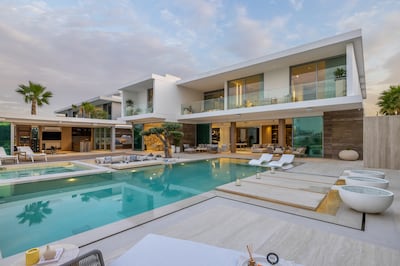
“The relative proximity to both Downtown and new Dubai, combined with access to international school, excellent neighbourhood facilities and amenities and, of course, its abundance of green space is quickly making Dubai Hills Estate one of Dubai’s most desirable neighbourhoods,” said Will McKintosh, regional partner and head of prime residential Mena at Knight Frank.
“Prices have unsurprisingly responded to the growing demand to live here and have risen by almost 11 per cent in the last 12 months, while the number of homes available for sale has fallen by 75 per cent to just over 1,000 units this past March.”
John Lyons, managing director of Espace Real Estate, which handled 20 per cent of villa sales on Palm Jumeirah in 2023, said off-plan properties are largely responsible for the increase in sales in the first quarter of the year.
“In the secondary market of completed properties, the market has remained steady with 18 transactions above the $10 million price point compared to 21 in Q1 2023,” he said.
“By contrast, the off-plan market above $10 million has accelerated with more than double the number of transactions, demonstrating the market's ability to absorb the increasing supply of luxury real estate.”
Several high-end off-plan projects have been launched on Palm Jumeirah in recent years, including Omniyat’s Orla collection and Arada’s Armani Beach Residences.
In the first week of sales, Arada said it sold more than 20 per cent of the 53 ultra luxury apartments at Dh8,000 per square foot.
Mr Lyons said further increases in sales on the Palm will depend on future supply.
“The demand for luxury real estate Dubai is high and rising,” he said.
“As developers increasingly build new supply to satisfy this demand, Dubai will further cement its position as a major destination for the global elite.”
